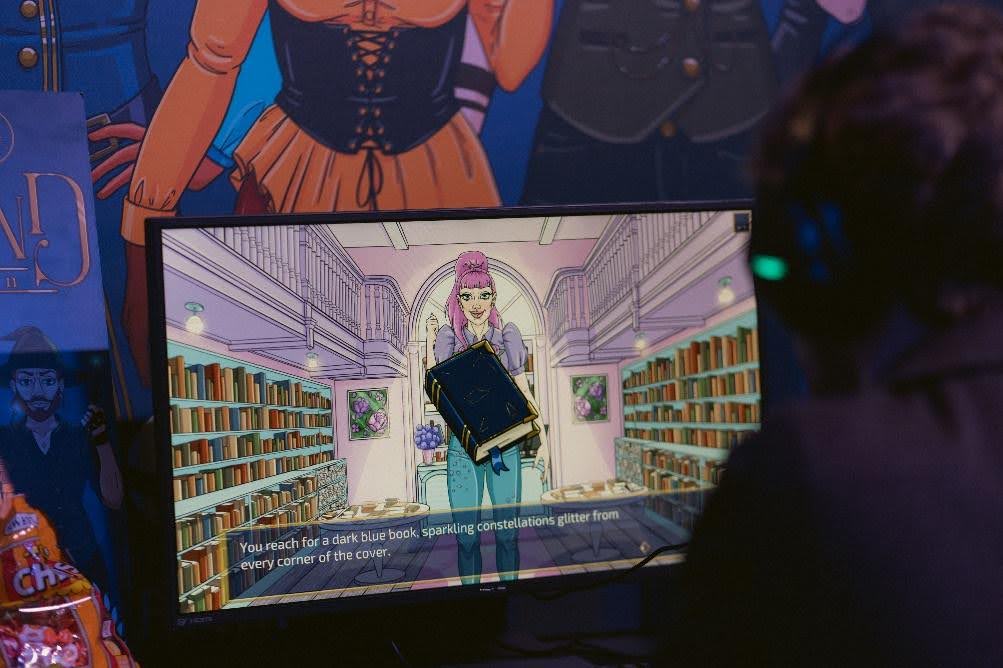

· By Sally Sheppard
Thinking About Starting Your Own Indie Studio!
If you’re reading this, I’m guessing you’ve thought about starting your own indie game studio, and I just want to say - go for it! I’m the founder of Wyrdren Games, and I’ve been down the path of starting a studio myself, so I understand firsthand how exciting and daunting it can be. But trust me, it’s worth it. I’ve put together a little guide for you if it’s something you are thinking about here are some things to consider:
Find Your Vision
The first step to running a successful indie studio is having a clear vision of the games you want to create. For me, I wanted to make narrative-driven games with strong emotional depth. Think about what drives your creativity - whether it’s gameplay mechanics, storytelling, or a unique artistic style. Having a strong personal connection to your work will help you stay motivated when the going gets tough.

Develop Your Skills
In the early stages, you’ll likely wear many hats, from jumping into designing, programming, art, and marketing. But the most important thing when founding the company is that you learn how to be a good leader - learning how to run the business will be its own job entirely and it’s on your shoulders to keep the engine running.
In my early days, I researched everything I could to get a better understanding, I attended local game events like Develop: Brighton, EGX, WASD, and Game Dev Local Expo to connect with other developers. These events are fantastic for learning, sharing ideas, and gaining insights into the industry. Attending talks and hearing from industry peers allowed me to decide for myself what tips and tricks I wanted to use in my own studio and which ones I didn’t.
Build Your Team
Starting solo is totally an option - I built and self-published my first game on my own for the first year of the studio’s existence. While it was difficult, it allowed me to learn parts of game development I’d never tried before. But, if you want to grow eventually, you’ll need a team. Bringing together talented individuals who share your vision or challenge you to grow is crucial, as it allows you to build bigger games and push your game designs.
It’s important to remind yourself what type of team you want to build - the culture of the company is so important when the team is small. Make sure you’re creating a space where everyone feels heard.
Funding Your Studio
Securing funding for your indie studio is one of the biggest hurdles. You can self-publish, which gives you an option to fund your own game and release it via platforms like Steam. It might mean taking a job alongside running the game company - I want to assure you there’s no shame in making enough to survive while you work on your dream.
Securing funding can take time away from building the game itself. In recent years, with the downturn in funding, this can result in no return, so balance your time wisely.
If you are ready to, look at organizations like UK Games Fund and Creative England who offer grants specifically for emerging developers. If you have a playable demo of your game, a roadmap for how you want to finish the game, and a plan for your team, it will improve your chances of getting funding. So, make sure you are confident in your plan and vision!

Navigating the Legal Side
In the UK, registering your studio as a limited company will provide legal protection and enhance your credibility. You should know that this costs money and continues to cost every year to keep your company registered so budget that in from the start! It’s good to have contracts in place with anyone involved, as business can get extremely messy without them. I’ve heard so many horror stories about developers going into business together and it ending badly because roles, shares, and expectations weren’t set out clearly before starting.
Leverage Support Networks
As a woman in game development, it can sometimes feel isolating, but there are many support networks available. Joining Discords like Women in Games UK, Into Games, Game Dev Local, BAFTA Games, or even finding your local game dev group can make a huge difference. For me, this was Guildford.Games, and when I moved into the local area, they welcomed me with open arms and have been a huge support network – find your local network and get involved.
Conclusion
Starting your own indie game studio is a challenging but incredibly rewarding journey. I would really like to see more female-identifying and marginalized developers succeed in this space. Use the resources available, find a supportive network, and have a clear vision, and you can create a studio that not only makes amazing games but also fosters a positive and inclusive environment. You’ve got this!
Written by Sally Sheppard (Wyrdren Games Ltd)
Social Media: @Sallygamesdev - TikTok, twitter and Bluesky YouTube

